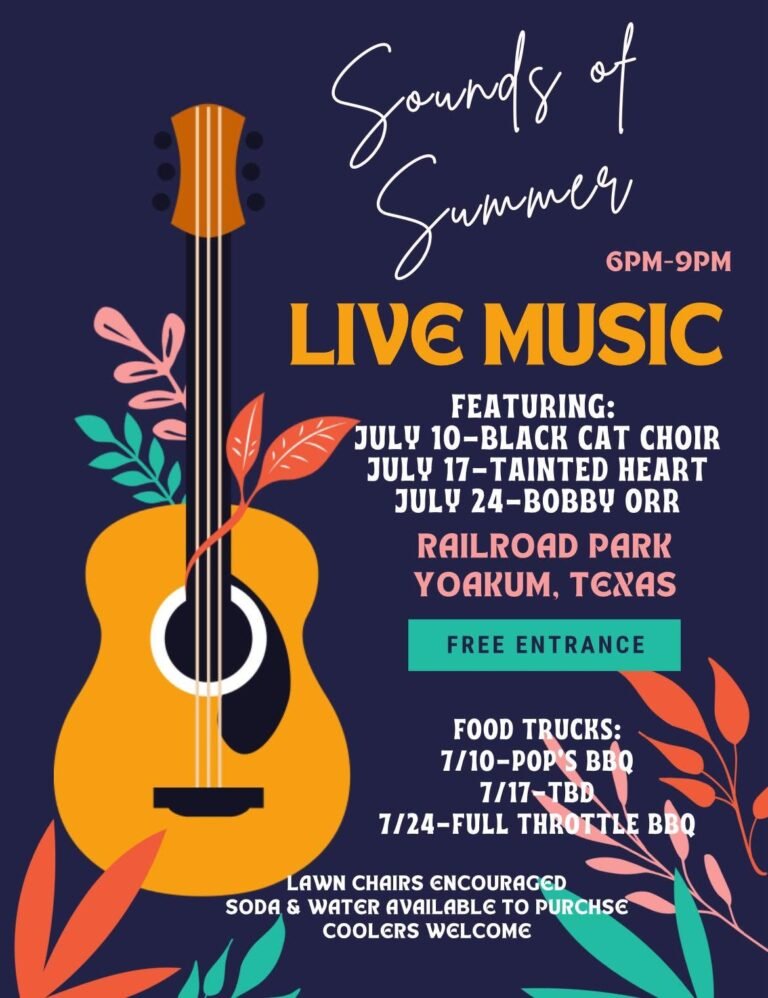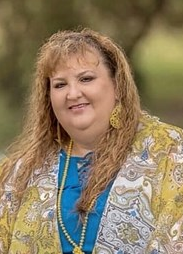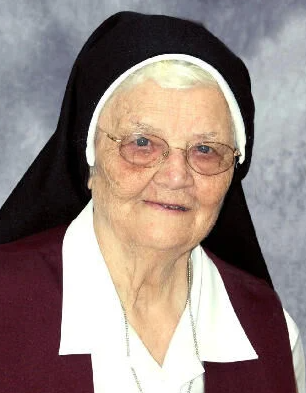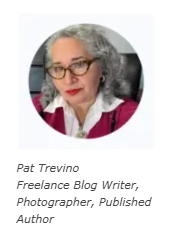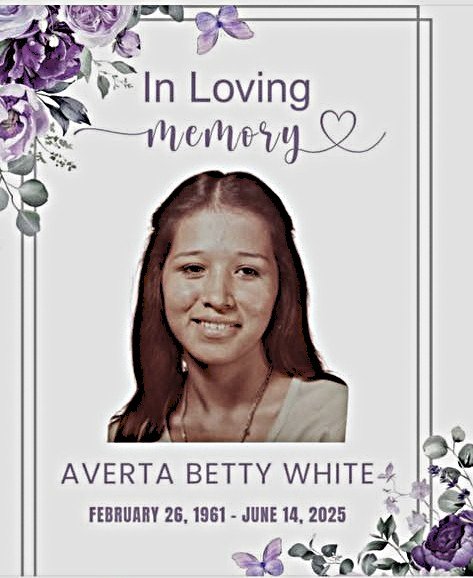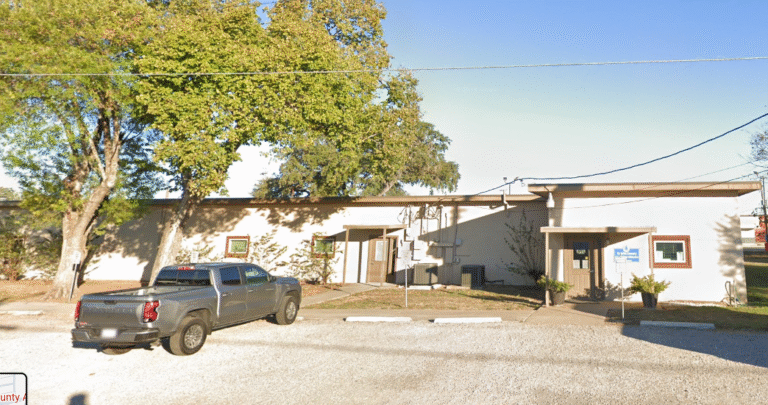By Staff Writer
June 30, 2025
YOAKUM, TX — The town of Yoakum is turning up the volume and serving up summer fun with a brand-new community event that’s sure to hit all the right notes. Get ready for 🎶Sounds of Summer🎶, a free, family-friendly music series lighting up Thursday nights in July at the beloved Yoakum Railroad Park from 6 to 9 p.m.
This toe-tapping, tastebud-tempting series kicks off Thursday, July 10, and promises three weeks of live music, savory BBQ, and plenty of small-town charm.
🎤 The Lineup:
- Thursday, July 10 – Black Cat Choir rocks the stage while POPS BBQ keeps the grill sizzling.
- Thursday, July 17 – Get ready to groove with Tainted Heart.
- Thursday, July 24 – Close out the series with Bobby Orr & J-Rocks, plus mouthwatering eats from Fullthrottlebbq.
With free admission, attendees are encouraged to bring lawn chairs, kick back, and enjoy a relaxed evening under the Texas sky. Refreshments including soda and water will be available for purchase courtesy of the Yoakum Area Chamber of Commerce.
Whether you’re a die-hard local or just passing through, Sounds of Summer is Yoakum’s invitation to savor the season with music, community, and a whole lot of BBQ.
So go ahead—save the dates, rally the crew, and soak in the sounds of summer, Yoakum-style.


